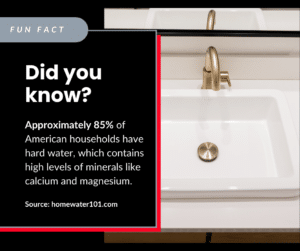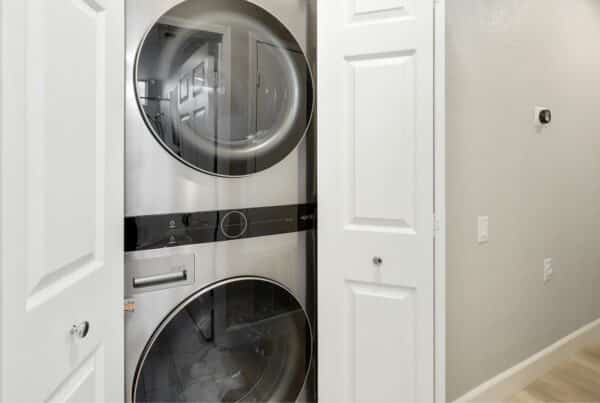
A bathroom sink filter is a simple yet effective way to improve the quality of water you use daily. Whether you’re washing your face, brushing your teeth, or rinsing after a shave, the water from your sink directly impacts your health and hygiene. Many homeowners focus on drinking water filtration but forget that bathroom water can also contain contaminants like chlorine, lead, bacteria, and even microplastics. These impurities can negatively affect your skin, hair, and overall well-being.
Unfiltered tap water may carry sediment, minerals, and harmful chemicals that cause dryness, irritation, and even long-term health concerns. If you’ve ever noticed an odd taste or smell in your bathroom tap water, it’s likely due to chlorine, rust, or other chemical residues present in municipal water supplies. A bathroom sink filter offers an easy and affordable solution to this problem, ensuring that the water you use every day is clean and safe. In this guide, we’ll explore what a bathroom sink filter is, why it matters, and how to choose the right one for your home.
What Is a Bathroom Sink Filter?
A bathroom sink filter removes impurities and contaminants from your faucet water. Many people filter their drinking water but forget about bathroom water. However, unfiltered bathroom water may contain chlorine, heavy metals, bacteria, and sediment. These can affect your skin, teeth, and health.
These filters use different technologies to clean water before it reaches you. Some attach directly to the faucet, letting you switch between filtered and unfiltered water. Others install under the sink and connect to your plumbing for continuous filtration. The best filter depends on your water quality, space, and needs.
Types of Bathroom Sink Filters
There are several types of bathroom sink filters, each designed to tackle different contaminants:
- Carbon Filters – These use activated carbon to absorb impurities such as chlorine, volatile organic compounds (VOCs), and some heavy metals. Carbon filters are excellent for improving the taste and odor of water but may not be as effective at removing bacteria or dissolved minerals.
- Reverse Osmosis Filters – These filters force water through a semi-permeable membrane, effectively removing a wide range of contaminants, including heavy metals, fluoride, and even bacteria. They offer the most thorough filtration but require a dedicated installation under the sink.
- Ceramic Filters – Made from porous ceramic material, these filters block bacteria, sediment, and debris while allowing clean water to pass through. They are great for removing physical particles but may not be as effective against dissolved chemicals.
- Multi-Stage Filters – These combine several filtration technologies to provide the most comprehensive water purification. They can remove chlorine, bacteria, lead, and other harmful substances in one system.
The purpose of installing a bathroom sink filter is to ensure that the water you use for daily hygiene is as clean and safe as possible. Many people don’t realize that unfiltered bathroom water can still contain harmful substances that contribute to skin irritation, dryness, and other health concerns. By investing in a filtration system, you not only enhance your overall well-being but also prolong the life of your plumbing fixtures by reducing mineral buildup and sediment deposits.
Benefits of Installing a Bathroom Sink Filter

Installing a bathroom sink filter offers numerous benefits that go beyond just cleaner water. Here’s why it’s a smart investment for your home:
- Healthier Skin and Hair – Removing chlorine, heavy metals, and other harsh chemicals from water prevents skin dryness, irritation, and damage to hair follicles. Many people experience smoother skin and shinier hair after switching to filtered water.
- Better-Tasting and Odor-Free Water – If your bathroom water smells like chlorine or has a metallic taste, a filter can help eliminate those unpleasant odors and flavors, making it safer and more enjoyable to use.
- Reduction of Bacteria and Contaminants – Some bathroom sink filters effectively remove bacteria, pesticides, and pharmaceuticals that may be present in municipal water supplies, reducing the risk of exposure to harmful substances.
- Cost Savings Over Time – Investing in a filter reduces the need for bottled water and expensive skin and hair treatments, saving you money in the long run.
- Eco-Friendly Solution – Using a bathroom sink filter means fewer plastic water bottles end up in landfills and oceans, contributing to a more sustainable environment.
- Easy Installation and Maintenance – Most filters are simple to install, and replacement filters are affordable and easy to change, ensuring continuous clean water with minimal effort.
How to Choose the Right Bathroom Sink Filter
With so many options available, selecting the best bathroom sink filter for your home can feel overwhelming. To make the right decision, consider the following factors:
- Assess Your Water Quality – Test your water to determine which contaminants need to be filtered out. Many local water reports are available online, or you can use a home testing kit.
- Decide on a Filtration Type – If your primary concern is chlorine and bad taste, a carbon filter may suffice. If you’re worried about heavy metals, bacteria, or fluoride, a multi-stage or reverse osmosis system is a better choice.
- Consider Installation Requirements – Some filters easily attach to the faucet, while others require professional under-sink installation.
- Check Filter Lifespan and Maintenance Needs – Some filters last for months, while others need more frequent changes. Choose a model that fits your lifestyle.
- Evaluate Water Flow Rate – Some filters reduce water pressure. If strong water flow is important to you, look for models that balance filtration with adequate pressure.
Installation & Maintenance Tips
A bathroom sink filter is relatively easy to install, but proper maintenance is crucial for optimal performance. Follow these steps to ensure clean water at all times:
- Installation: Most faucet-mounted filters can be screwed directly onto the faucet. Under-sink models may require basic plumbing tools and professional assistance.
- Replacing Filters: Follow the manufacturer’s recommendations on when to replace the filter—usually every 3 to 6 months, depending on usage.
- Cleaning the Filter Housing: Wipe down the filter casing periodically to prevent buildup and ensure efficient operation.
- Monitoring Water Flow: If you notice a decrease in water pressure, it might be time to change the filter.
Common Issues & Troubleshooting
Even the best bathroom sink filter can experience occasional issues. Knowing how to troubleshoot common problems can save you time and ensure your filter continues working properly. Here are some issues you may face and how to fix them:
-
Slow Water Flow – If your filter is slowing down your water flow, it may be clogged with debris, minerals, or sediment. First, check the filter cartridge and replace it if it has reached the end of its lifespan. If water flow is still slow after changing the filter, inspect the faucet aerator for buildup. Sometimes, sediment from your pipes can accumulate inside the filter housing. Flushing the system or cleaning the aerator screen can help restore normal flow.
-
Leaks Around the Filter – Leaks usually happen when a filter is not installed correctly or when the seals wear out. Start by tightening all connections to ensure a proper fit. If the leak continues, check the rubber gaskets or O-rings inside the filter housing. Worn-out seals may need replacement. If your filter housing is cracked or damaged, replacing the entire unit may be necessary.
-
Strange Taste or Odor – A bathroom sink filter should improve the taste and smell of your water, but if you notice an odd flavor or lingering odor, it may be time to replace the filter cartridge. Filters become less effective over time as they absorb contaminants. Another possible cause is bacterial growth inside an old filter. If the filter has been sitting unused for a while, flushing it by running water through it for several minutes can help clear out any stagnant water. If the issue persists, replacing the filter is the best solution.
Regular maintenance can prevent most of these issues, keeping your filter working efficiently. Checking the manufacturer’s guidelines on filter replacement and cleaning will help extend the lifespan of your filtration system.

Is a Bathroom Sink Filter Right for Your Home?
If you’re wondering whether a bathroom sink filter is necessary, start by evaluating your household’s water quality and daily water usage. Not all tap water is the same, and factors like location, plumbing materials, and municipal water treatment processes can affect what comes out of your faucet. Some areas have higher levels of chlorine, while others may contain heavy metals, bacteria, or excess minerals from hard water. Conducting a simple water test can help determine if a filter is needed for your home.
Certain households benefit more from a bathroom sink filter than others. Families with sensitive skin often experience dryness, irritation, or redness from exposure to chlorine and other chemicals in tap water. These contaminants strip away natural oils from the skin and hair, leading to itchiness or discomfort. For young children, who have more delicate skin and are more vulnerable to certain contaminants, filtered water provides extra protection against irritation.
If you live in an area with hard water, a sink filter can help reduce mineral buildup, which leaves white residue on faucets, sinks, and even your skin. Hard water minerals, like calcium and magnesium, can clog pores, dry out hair, and create an unpleasant film on the skin. A filter designed to soften water can improve not only water quality but also personal care routines.
Conclusion
A bathroom sink filter is a small but powerful upgrade that improves water quality, supports healthier skin, and removes harmful contaminants. Whether you choose a simple carbon filter or a more advanced reverse osmosis system, clean water is always a smart investment.
If you’re unsure about your home’s water quality, a professional home inspection can identify plumbing issues and filtration needs. Our experts can help you find the best solutions for cleaner, safer water. Schedule your home inspection today and take the first step toward better water quality!



